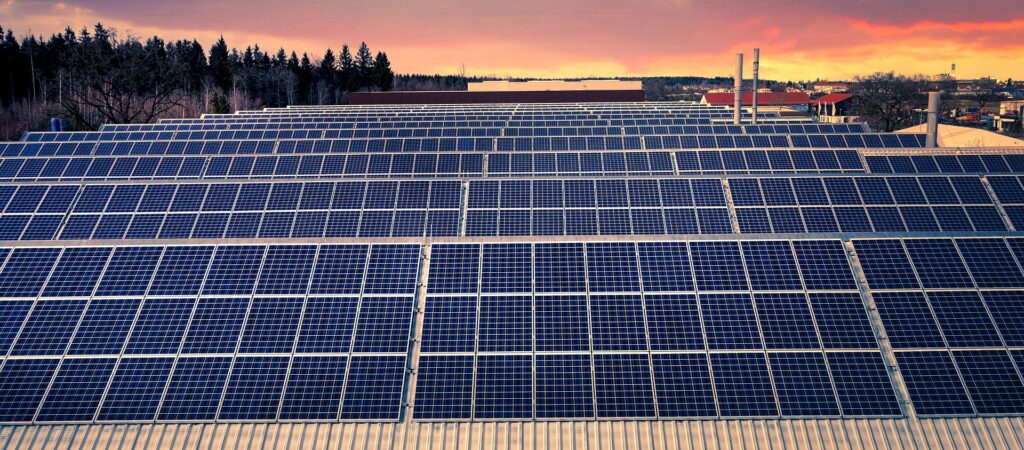It’s no secret that solar power is quickly becoming one of the leading sources of energy for residential and commercial purposes. From offsetting high energy bills to reducing your carbon footprint, solar power offers an abundance of economic, environmental, and financial benefits. The benefits begin with installation and maintenance costs. Solar panels are long-lasting investments that require little to no upkeep once they are installed. This low maintenance means a great return on investment over time and cost savings compared to traditional electricity bills.

Additionally, many states and local governments offer incentives or tax credits for transitioning to solar power, making it even more economically sound. Solar power also provides tremendous environmental advantages. Unlike other energy sources that rely on fossil fuels or nuclear reactions, solar energy does not result in air pollution or hazardous waste products as a byproduct of production. Solar power also emits zero carbon into the atmosphere, thus helping reduce global warming over time as more people switch from traditional energy sources.
Solar Energy vs Fossil Fuels Efficiency:
Solar energy and fossil fuels are two of the most popular sources of energy used across the globe. While both are reliable and effective, they vary in terms of efficiency and cost-effectiveness. Solar energy is derived from sunlight, which is a reliable source of power that’s free. Solar panels rely on a process called the photovoltaic effect to convert sunlight into usable energy that can be used to power homes, businesses, and other applications. Furthermore, solar energy is clean – no pollution or air contamination is created when utilizing this form of renewable energy. As such, solar power has the potential to reduce carbon dioxide (CO2) emissions – a significant contributor to global warming.
In contrast, fossil fuels are non-renewable energies that are derived from ancient organic matter such as coal, oil, and natural gas. Unlike solar energy, these sources of non-renewable energies emit harmful pollutants into the atmosphere that contribute significantly to global warming, acid rain, and environmental destruction. Additionally, fossil fuels are finite resources – meaning their supplies will run out at some point in time and could potentially cause an increase in prices for these resources as demand grows. Despite their utilization for centuries now due to their availability and affordability, their resources are quickly diminishing due to their non-renewable nature; ultimately leading us down an ambitious path towards renewable resources such as solar power every day.
Solar Energy vs Fossil Fuels Statistics:
When it comes to energy production and use, solar energy and fossil fuels are two of the most popular sources. While each has its own advantages, there are a few key points of comparison between the two. Solar energy is a renewable resource that is abundant and free. It emits no harmful greenhouse gases and produces no hazardous waste. Solar energy can be used to generate electricity, heat water, and directly power consumer products, such as solar-powered appliances and lights.
On the other hand, fossil fuels produce large amounts of carbon dioxide when burned, contributing to air pollution. Fossil fuels are non-renewable resources that will eventually run out and are heavily subsidized by governments.
Solar power is more efficient than fossil fuels in terms of the amount of energy produced per unit of fuel consumed or emitted. According to data from the US Energy Information Administration, 2019 saw a solar panel efficiency rate of 22%, while natural gas had an efficiency rate of 33%. Solar panels require less maintenance than traditional fossil fuel methods due to their simpler designs.
In terms of cost-effectiveness, solar energy has seen major improvements in recent years due to federal tax credits, state incentives, and improved panel efficiency rates. The cost per watt for residential solar installations has fallen by over 64% since 2010 while traditional fossil fuel costs (electricity generated from coal) have not decreased substantially over that same time frame. At the same time, wind and solar accounted for 22% of electricity generation in 2020 compared to coal’s 19%. Moreover, prices for natural gas (the primary source of electricity production in many countries) have also been volatile due to supply instability caused by extreme weather events linked to climate change.
Why is Solar Energy Safer for the Environment?
Solar energy is safer for the environment because it’s a clean and renewable form of energy. Unlike coal, oil, and other traditional fossil fuels, solar energy produces no harmful emissions into the atmosphere. Solar power is the ultimate clean and renewable form of energy, since it relies on natural resources like sunlight to produce electricity. This makes solar a much better choice for the environment, as it will not contribute to profits or further degrade our planet. Additionally, solar installations can have long lifespans and very few maintenance needs outside of regular cleaning. The minimalism associated with solar means that far less work needs to be done to keep them up and running compared to other energy sources. The end result is a much safer environment with less pollution that is capable of sustaining human life well into the future.
Why is Solar Better than Natural Gas?
Solar power has many advantages over natural gas as an energy source. Solar energy is an infinite, renewable resource that does not require any pollution-producing burning or drilling to produce power. Solar also does not require a large infrastructure of pipes, pumps, and other materials associated with natural gas production and delivery. An additional benefit of solar is that it costs significantly less than natural gas in most cases over the long run. As natural gas prices continue to fluctuate on a daily or weekly basis, solar prices remain stable due to the fact that they are based off of the cost of materials and installation. Additionally, as technology improves and solar panels become more efficient, their long-term cost continues to decrease further emphasizing the cost advantage over other natural sources of energy.
Conclusion:
Solar energy is arguably the best energy option because it is clean, renewable, and sustainable. Solar power does not produce any pollution or emissions, meaning that it is an environmentally friendly form of energy. Furthermore, solar energy is abundant and available in all parts of the world. It can be harnessed to generate electricity in remote areas that don’t have access to other forms of energy. Additionally, it can be used to provide electricity in the home and office. Solar is also cost-effective compared to other forms of energy because there are no fuel costs and the upfront cost of installation can be offset by long-term savings on your electric bill.
